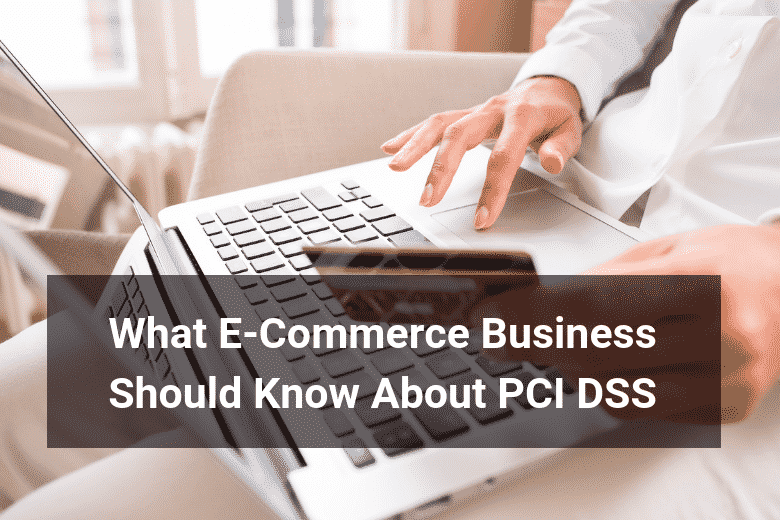The Equifax data breach led to the exposure of the personal details of 147.9 million people, according to CSO Online. This data included driving license numbers, birth dates, credit card information, and social security numbers, to name a few details. The credit card bureau had to spend more than $700 million in breach settlement, not to mention, monitor the accounts of the affected individuals.
While this was a blow that Equifax managed to handle, there is no telling what it would do to your e-commerce business. As a result, researching on ways to keep your business safe from a data breach is essential. Becoming PCI certified is undoubtedly a step in the right direction, and is compulsory if you handle any credit card data. At the very least, it will offer your business a sense of direction when it comes to information security.
Here what you ought to know about PCI DSS:
What Is PCI DSS?
The PCI DSS is a security standard meant to uphold data-security in the credit card payment industry. The top credit card brands established it- Visa, Discover, American Express, JCB, and Mastercard- to combat the rising rates of credit card fraud. Before developing the standard, each credit card brand had a set of security policies that merchants had to use to remain compliant.
Since merchants had to accept a couple of credit card brands for business to run smoothly, keeping up with all these requirements was tedious. By using the same security standard, the cost of compliance was reduced, meaning a more secure payment industry. As long as your business handles credit card data, you are required to comply with the standard. This includes processing, storing, transferring, or receiving credit card payments.
Why You Should Care About PCI Compliance
Businesses are built on trust; you trust that your customers will pay and they trust that you will deliver their requests and protect their personal information. A data breach will break this trust in an instance, leading to high customer churn rates. Even worse, the downtimes caused by data breaches can lead to even more losses. For instance, a single hour of downtime cost Amazon $100 million on Prime Day.
Other than gaining customers’ trust, PCI compliance can showcase your business as a worthy investment to security-sensitive investors. Both help to create a strong brand reputation, propping your business up for exponential growth. Since data security is essential, complying with PCI DSS offers you an idea of the path you should follow for a strong security posture. While the standards are meant to protect the credit card and cardholder data, they can help beef up information security in other areas of the business as well.
How To Become PCI DSS Certified
The PCI DSS comes with 281 requirements and 12 objectives that your business needs to meet. While some outline the security tools to use around your data, others outline the policies that need to be in place. In case your vendors also have access to your credit data, they too need to be PCI DSS compliant. If they are affected by a data breach, you too might feel the ripple effect.
However, the strictness you have to follow”https://reciprocity.com/how-to-become-pci-dss-certified/” to achieve compliance will depend on the level you lie. PCI DSS has four compliance levels, with each having its own requirements. While level one is the strictest, level four is the least strict. Also, the costs of compliance increase as the level of strictness increase.
Know Your PCI Compliance Level
You belong to level 1 of PCI compliance if your business handles above 6 million credit card transactions annually. If you handle 1-6 million annual credit card transactions, then your business falls in level 2. Level 3 of PCI DSS compliance is for merchants that handle anywhere between 20,000 and 1 million annual credit card transactions.
Lastly, you belong to level 4 if your business handles less than 20,000 annual credit card transactions. However, if your business gets breached, you will automatically belong to level 1, where compliance is more expensive.
The Costs Of Non-Compliance
Non-compliance can expose your business to a lot of risks, even without a data breach. For instance, your e-commerce business will seem unappealing to investors who care about compliance and security. On the other hand, being non-compliant can lead to hefty fines.
You can be fined anywhere between $5,000 and $100,000 for any month that you remain non-compliant. The greatest risk of non-compliance will come from the threat of a data breach. Every day, cybercriminals are looking for new ways to gain access to sensitive data, and your business could easily fall prey of such criminals.
A data breach can damage your reputation, leading to the loss of customers and investors. You might also get fined for being non-compliant. Another cost you will have to offset is the cost of trying to recover from the data breach, not to mention, the costs of breach settlement.
In the worst-case scenario, your e-commerce business might be banned from accepting card payments. This can be a significant blow considering the role that credit cards play in today’s society. You might have to pay for forensic investigations to assess the data breach. Lastly, you will pay more to achieve compliance once your business gets shifted to compliance level 1.
Avoid Storing Unnecessary Credit Card Data
Cardholder data contains sensitive information, from card numbers to passwords. In the hands of cybercriminals, this information can be an excellent tool for identity theft. If you can do without storing credit card data, avoid it. If you do, you should at least encrypt the data. Encrypting the data will make it impossible to understand without a decryption key, turning the data into something useless to any unauthorized party.
Focus On Access Control
The threat insiders pose to the security of your business is quite high. If a disgruntled employee wants to wreak havoc, the fact that they have access to sensitive data makes it easy for them. It can be anyone, from a fired employee to a staff member being manipulated by cybercriminals. The best way to steer away from these risks is to use access control policies.
Employees should only have access to data that fits their role in the organization. The policies should also outline where, when, and how employees are allowed to gain access to your data. For instance, you can set a policy that employees can only access company networks using a VPN if they are on public Wi-Fi. Access control should also include physical access to your data. Using tools like keycards to limit access to server rooms and any room you store documents is essential.
Use PCI DSS As A Security Add-On
Compliance isn’t equal to optimal security. While PCI DSS promises to protect your credit card data, it isn’t enough to only rely on it. Every day, new security threats are affecting e-commerce businesses. Sadly, the standard isn’t updated as fast as these security threats arise.
For a healthy security posture, be sure to keep an eye out for upcoming security threats and use tools that can help limit the chances of a data breach. Only consider the security controls outlined in the regulations as add-ons, instead of being your entire security strategy.
PCI DSS is meant to make all parties happy, from customers to credit card brands. The good thing is that compliance doesn’t have to be hard after the first year. Work on being PCI DSS compliant to create a sustainable future for your business.
Floship is one of Asia’s leading order fulfillment providers. Located in Hong Kong, Floship takes care of the entire fulfillment process for e-commerce businesses that manufacture or import goods from China and want to ship globally. If you require fulfillment services, click here to get in touch and get a custom shipping solution from us.

Ready To Upgrade Your Logistic Solution?
Speak to Floship ecommerce logistic consultant about improving your global support chain today




